
13 Best Payroll Outsourcing Companies in 2024
Payroll Outsourcing: In-Depth Reviews and Comparisons
Explore our comprehensive analysis of top payroll outsourcing companies. With detailed reviews and insightful comparisons, this article equips you with valuable information to make an informed decision for your business’s payroll needs.
Below is our list of the top 13 best payroll outsourcing companies in 2024 – But First, Our Top 6 Choices
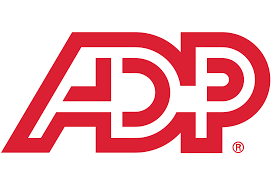
ADP
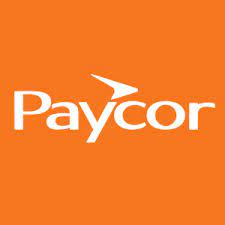
Paycor
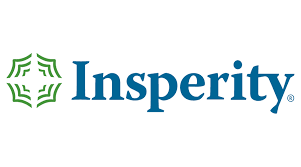
Insperity
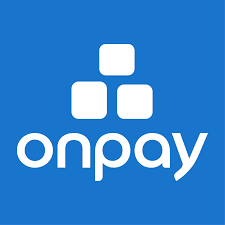
OnPay
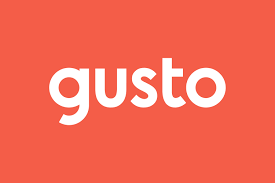
Gusto
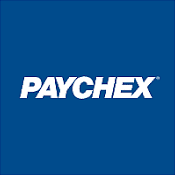
Paychex
Full Review of the Top 13 Online Payroll Companies
Below is our full review of the top 13 payroll companies, including the pros and cons you can expect from doing business with each one of them.
1. ADP (Automatic Data Processing)

ADP is a multinational payroll outsourcing company and it has been a global leader in the industry for years. They offer comprehensive, scalable payroll services for businesses of all sizes, from startups to large enterprises. Their services are exceptionally user-friendly, and they provide excellent customer support. However, ADP’s pricing can be somewhat higher than other providers.
ADP (Automatic Data Processing) is a widely used payroll processing service. Here are two key pros and cons of using ADP for payroll processing:
Pros
- Comprehensive Services: ADP offers a wide range of payroll-related services, including tax filing, direct deposit, benefits administration, and compliance management. This comprehensive approach can streamline payroll processes, making it easier for businesses to manage employee payments and related tasks.
- Scalability and Flexibility: ADP’s solutions are scalable and can be tailored to fit the needs of businesses of all sizes, from small startups to large enterprises. This flexibility ensures that businesses can adjust their payroll services as they grow or as their needs change.
Cons
- Cost: ADP’s services can be more expensive than other payroll processing options, particularly for small businesses. The pricing structure may include fees for additional services or per-employee charges, which can add up, especially for businesses with a large workforce.
- Complexity: Some users find ADP’s interface and system somewhat complex and not particularly user-friendly, especially in the beginning. This complexity can lead to a steeper learning curve for new users, requiring more time and resources for training and adjustment.
Overall, ADP is a robust solution for payroll processing but may not be the best fit for every business, especially smaller ones sensitive to cost and complexity. It’s important for businesses to evaluate their specific needs and resources before choosing a payroll service provider. Read Full Review
2. Paycor

Paycor offers a comprehensive suite of services, including payroll, HR, time tracking, and recruiting. Their platform is robust and user-friendly, with excellent integration capabilities. Paycor is suitable for businesses of all sizes, though their pricing might be higher than some competitors.
Paycor is a modern payroll and human resources (HR) software solution. Here are two key pros and cons of using Paycor for payroll processing:
Pros
- Comprehensive HR and Payroll Integration: Paycor offers a robust integration of payroll services with various HR functions like recruiting, timekeeping, and benefits management. This integrated approach allows for a more cohesive management experience, streamlining HR and payroll processes and reducing the need for multiple separate systems.
- Customizable and Scalable Solutions: Paycor’s platform is known for its high degree of customization and scalability, making it a good fit for businesses of varying sizes and with diverse needs. It allows companies to tailor the service to their specific requirements, which can evolve as the business grows.
Cons
- Learning Curve and Complexity: Some users find Paycor’s software to be complex, particularly when first starting out. The wide range of features, while beneficial, can also make the system overwhelming, leading to a steeper learning curve for new users or small businesses without a dedicated HR team.
- Customer Support Variability: There are mixed reviews regarding Paycor’s customer support. Some users have reported excellent experiences, while others have encountered challenges with response times and the level of support provided. This variability can impact the overall user experience, especially when dealing with complex payroll or HR issues.
As with any payroll processing solution, the effectiveness of Paycor can vary based on a company’s specific needs and resources. It’s generally recommended for medium to larger businesses or those with more complex HR and payroll requirements, but smaller businesses should carefully consider whether the system’s complexity aligns with their capabilities and needs. Read Full Review
3. Insperity

Insperity Payroll provides an intuitive, comprehensive service, ideal for small to medium-sized businesses. Its seamless integration with various HR functions enhances operational efficiency. While it might be on the pricier side for smaller businesses, the value it offers in terms of reliability and accuracy in payroll management is significant. Customer support is excellent, offering prompt and helpful assistance. The platform’s robust reporting capabilities and ease of use are standout features, making payroll tasks less complicated.
Pros:
- Comprehensive HR Integration: Insperity Payroll is highly integrated with other human resources functions, such as benefits management and compliance. This integration means that data flows seamlessly between different aspects of HR, reducing the need for manual data entry and minimizing the risk of errors. It simplifies processes for businesses, allowing them to manage payroll and other HR tasks in a more streamlined and efficient manner.
- Excellent Customer Support: Insperity is known for its strong customer support. Users have access to knowledgeable and responsive support teams who can assist with any payroll-related queries or issues. This level of support is particularly beneficial for small to medium-sized businesses that might not have a dedicated HR or payroll specialist on staff, as it ensures they can resolve issues quickly and keep their operations running smoothly.
Cons:
- Cost for Smaller Businesses: One of the main drawbacks of Insperity Payroll is its cost, particularly for very small businesses. The pricing structure may be more aligned with the needs of mid-sized businesses, making it a potentially expensive option for small companies with limited budgets. This cost factor can be a significant barrier for smaller businesses looking for affordable payroll solutions.
- Complexity for Simple Needs: While the comprehensive nature of Insperity’s services is a strength, it can also be a downside for businesses with simpler needs. For companies that require only basic payroll services, the extensive features and integrations offered by Insperity might be more than they need, leading to a more complex and potentially overwhelming experience. This complexity can deter businesses looking for straightforward, easy-to-use payroll solutions.
4. OnPay

OnPay is a highly commendable payroll solution, especially suited for small to medium-sized businesses. Its user-friendly interface stands out, making payroll processing straightforward and accessible, even for those new to payroll tasks. The comprehensive features, including efficient tax filings, versatile payment options, and a clear, all-inclusive pricing model, add significant value. Although its HR functionalities are somewhat basic compared to specialized platforms, they are adequate for standard requirements. The platform’s strong customer support is a major plus, ensuring users get timely help when needed. However, larger businesses or those with complex payroll needs might find OnPay’s capabilities a bit limited. Overall, OnPay offers a solid, user-friendly, and cost-effective payroll solution.
OnPay, a prominent payroll service provider, offers distinct advantages and some limitations. Here are two key pros and cons of OnPay’s payroll service:
Pros
- Ease of Use: OnPay’s platform is widely appreciated for its user-friendly interface. This simplicity makes it an ideal choice for small to medium-sized businesses, particularly those without a dedicated payroll specialist. The intuitive design streamlines payroll processing, making tasks like running payroll, adding new employees, and managing tax filings more manageable and less time-consuming.
- Comprehensive Service at a Competitive Price: OnPay offers a wide range of payroll features, including unlimited payroll runs, tax filings, and an array of payment methods, all for a transparent and competitive monthly fee. This inclusive pricing model is especially beneficial for businesses looking to manage costs while still accessing a full suite of payroll services.
Cons
- Limited Advanced HR Features: While OnPay does provide basic HR functionalities, its offerings in this area are not as extensive as some of its competitors that specialize in comprehensive HR solutions. Businesses seeking advanced HR tools like in-depth performance management or extensive benefits administration might find OnPay’s features somewhat lacking.
- Best Suited for Small to Medium-Sized Businesses: OnPay is tailored primarily for the needs of small to medium-sized businesses. Larger organizations or those with more complex payroll requirements may find that OnPay doesn’t fully meet their needs in terms of scalability and advanced functionality.
Businesses considering OnPay should evaluate these pros and cons in relation to their specific payroll needs, size, and the complexity of their operations to determine if it is the right fit for them. Read Full Review
5. Gusto Payroll

Gusto is known for its user-friendly platform and excellent customer service. They offer fully integrated payroll, benefits, and HR tools. Gusto is particularly popular among small businesses and startups due to its competitive pricing and simplicity. However, some users might find their feature set to be less extensive compared to other players.
Gusto is a modern payroll, benefits, and human resource management platform. Here are two key pros and cons of using Gusto for payroll processing:
Pros
- Ease of Use and User-Friendly Interface: Gusto is renowned for its intuitive and user-friendly interface, making payroll processing straightforward even for those with limited payroll experience. This ease of use is particularly beneficial for small to medium-sized businesses that may not have a dedicated HR or payroll specialist.
- Comprehensive HR Features: In addition to payroll, Gusto offers a wide range of HR features, including benefits administration, compliance support, and HR tools. This comprehensive approach allows businesses to manage multiple aspects of HR and payroll through one integrated platform, streamlining operations and reducing the need for multiple software solutions.
Cons
- Pricing for Additional Features: While Gusto offers a range of plans, the cost can increase significantly with additional features or higher-tier plans. For small businesses or startups on a tight budget, these costs can be a significant consideration, especially if they need more advanced features.
- Limited Customization and Scalability for Larger Businesses: Gusto is highly favored by small to medium-sized businesses, but larger organizations might find its customization and scalability options limited. Businesses with complex payroll needs or those requiring more tailored solutions might need to look at more robust payroll systems.
Businesses considering Gusto for their payroll processing needs should evaluate these pros and cons in light of their own size, budget, and specific requirements to determine if it is the right fit for them. Read Full Review
6. PAYCHEX
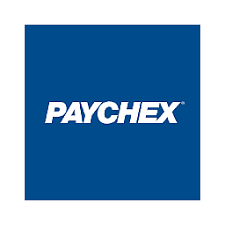
Paychex Payroll offers a robust and versatile payroll solution, especially suited for small to medium-sized businesses. It excels in providing customizable options and excellent tax compliance support. The user interface is straightforward, enhancing ease of use. However, some users may find the pricing slightly higher compared to competitors. The customer service, while generally reliable, can vary in responsiveness. Overall, Paychex stands out for its comprehensive features and strong regulatory compliance, making payroll management more efficient.
Pros:
- Comprehensive Services: Paychex offers a wide range of payroll services, including tax administration, employee pay options, and various reporting features. This comprehensive approach is beneficial because it simplifies payroll management for businesses. Instead of coordinating with multiple vendors for different payroll aspects, companies can rely on Paychex to handle everything from calculating payroll taxes to generating detailed reports, which can save time and reduce administrative burden.
- Scalability and Customization: Paychex provides scalable payroll solutions, meaning they can cater to the needs of different sizes of businesses, from small startups to large corporations. This scalability is a significant advantage as it allows businesses to continue using Paychex services as they grow, without needing to switch to a different provider. Additionally, Paychex offers customization options, which means businesses can tailor the services to their specific needs, ensuring a more efficient and relevant payroll process.
Cons:
- Cost: One of the downsides of Paychex is that it can be more expensive than some other payroll services. The comprehensive range of services and the reputation of the company often mean higher pricing, which might not be feasible for very small businesses or those with a tight budget. This cost factor can be a significant consideration, especially for businesses where payroll complexity doesn’t justify the expense of a high-end service.
- Complexity for Smaller Businesses: While the extensive features and services offered by Paychex are beneficial for larger companies, they can sometimes be overwhelming for smaller businesses. The complexity of the system, with its numerous options and features, might be more than what a small business needs. This can lead to a steeper learning curve and potential underutilization of the service, as smaller businesses might not need or have the capacity to engage with all the features offered.
7. iSolved Payroll
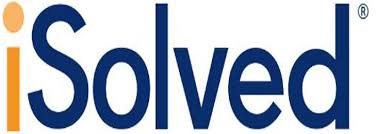
iSolved is an effective, comprehensive solution for payroll and human capital management. Their platform is robust and offers extensive customization. While it might take some time to learn the platform due to its extensive capabilities, it is well worth it for businesses requiring advanced HR tools.
iSolved is a comprehensive payroll and HR solution widely used by businesses. Here are two key pros and cons of using iSolved for payroll processing:
Pros
- Integrated HR and Payroll Platform: iSolved offers a fully integrated system combining payroll, HR, time tracking, and benefits management. This integration allows for streamlined data management and process efficiency, reducing the need for multiple, disparate systems.
- Customization and Scalability: The platform is highly customizable, enabling businesses to tailor it to their specific needs. It’s also scalable, making it suitable for businesses of various sizes, from small startups to larger enterprises, and can adapt as a business grows.
Cons
- Complexity and Learning Curve: Some users find the iSolved platform to be complex, particularly in the initial stages of use. The range of features and options, while comprehensive, can be overwhelming, leading to a steeper learning curve for new users.
- Customer Support Variability: There have been mixed reviews regarding the quality and responsiveness of iSolved’s customer support. Some users report excellent experiences, while others have faced challenges in getting timely and effective support for their queries or issues.
As with any payroll and HR solution, the suitability of iSolved greatly depends on the specific needs and resources of a business. It’s often favored by companies looking for an all-in-one solution but might present challenges for those who prefer a simpler, more straightforward tool. Read Full Review
8. Oasis Payroll
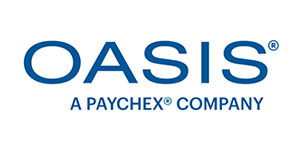
Oasis offers a variety of services including payroll, HR, and PEO (Professional Employer Organization). They are known for their customizable solutions and excellent customer service. However, their platform is a bit less intuitive than other providers, so some users might experience a learning curve.
Oasis, a Paychex® Company, offers payroll processing services along with other HR solutions. Here are two key pros and cons of using Oasis for payroll processing:
Pros
- Comprehensive HR and Payroll Services: Oasis provides a wide range of services that integrate payroll processing with other HR functions like benefits administration, compliance management, and employee onboarding. This comprehensive approach allows businesses to handle various HR and payroll tasks through a single platform, enhancing efficiency and cohesion.
- Expertise in Compliance and Regulatory Issues: Oasis is known for its expertise in dealing with complex compliance and regulatory matters. This is particularly beneficial for businesses that operate in industries with stringent regulatory requirements or those that are unsure about navigating various compliance issues related to payroll and HR.
Cons
- Cost Considerations: Oasis’ comprehensive services can come at a higher cost compared to some other payroll service providers. This might be a significant consideration for small businesses or those with a tight budget.
- Complexity for Smaller Businesses: While the wide range of services offered by Oasis is a strength, it can also be a drawback for smaller businesses that may find the system too complex or more extensive than their needs warrant. The plethora of features and options might be overwhelming for those who need a more straightforward payroll solution.
Each business should assess these pros and cons in light of its own needs, size, and industry requirements to determine if Oasis is the right choice for its payroll processing needs. Read Full Review
9. Coastal Payroll
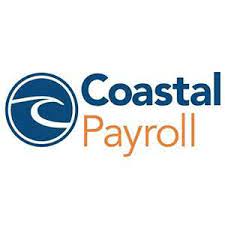
Coastal Payroll is a regional payroll outsourcing provider known for their personalized, high-touch customer service. They offer reliable payroll and HR solutions. While their software might lack some of the bells and whistles of larger providers, their exceptional service makes up for it.
Coastal Payroll, a provider of payroll and HR services, has its own set of advantages and disadvantages. Here are two key pros and cons of using Coastal Payroll for payroll processing:
Pros
- Local Expertise and Personalized Service: Coastal Payroll is often recognized for its strong local market expertise and personalized customer service. They are known to provide dedicated support and a more tailored approach to client relations, which can be particularly beneficial for small to medium-sized businesses seeking a more hands-on service experience.
- User-Friendly Interface: The platform is appreciated for its intuitive and user-friendly interface, making payroll processing simpler and more accessible, even for those without extensive payroll or technical experience. This ease of use can significantly streamline the payroll process.
Cons
- Limited Advanced Features for Large Businesses: Coastal Payroll’s services, while comprehensive, may not have the depth of advanced features required by larger corporations or businesses with highly complex payroll and HR needs. This can limit its suitability for certain larger or more specialized organizations.
- Integration with Other Systems: Some users have reported challenges in integrating Coastal Payroll’s system with other business software. This could be a drawback for businesses that rely on seamless integration between payroll and other systems like accounting or human resource management software.
Businesses considering Coastal Payroll should weigh these pros and cons against their specific requirements, particularly focusing on the size of their organization and the complexity of their payroll and HR needs. Read Full Review
10. Poppins Payroll
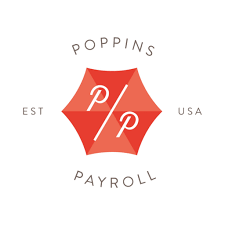
Poppins Payroll is a niche payroll service catering specifically to households employing nannies or other domestic help. Their platform is simple, straightforward, and affordable, but may not meet the needs of larger businesses or those requiring more complex HR services.
Poppins Payroll is a payroll processing service that primarily targets small businesses and households. Here are two key pros and cons of using Poppins Payroll for your payroll needs:
Pros
- Simplicity and User-Friendliness: Poppins Payroll is designed with simplicity in mind, making it highly user-friendly. This is especially beneficial for small businesses or household employers who may not have extensive payroll processing experience. The straightforward interface and process can significantly reduce the complexity typically associated with payroll tasks.
- Affordable Pricing for Small Employers: Poppins Payroll offers an affordable pricing structure, which is particularly attractive for small businesses and household employers like those hiring nannies or other domestic workers. This cost-effectiveness is a major advantage for those with tighter budgets.
Cons
- Limited Features for Larger Businesses: Poppins Payroll is tailored more towards small-scale employers and might not have the comprehensive feature set needed by larger businesses. Companies with more complex payroll needs, such as those with a larger number of employees or those requiring intricate payroll configurations, may find the service lacking.
- Focus on Household Employers: While this is a strength for household employers, it can be a limitation for commercial businesses. Poppins Payroll specializes in domestic employment situations (like nanny payroll), and its features, tax support, and compliance tools are primarily geared towards this market, which might not fully align with the needs of more traditional business models.
For those considering Poppins Payroll, it’s essential to assess whether its scope and capabilities align with the specific payroll needs and the scale of their operation, especially if they are beyond the realm of household employment. Read Full Review
11. Paylocity

Paylocity is renowned for its innovative and intuitive software platform, offering not only payroll services but also HR tools, employee management systems, and time & labor solutions. They are a preferred choice for small to medium-sized businesses, but their customizable services are well-suited to companies of various sizes. Their customer support is excellent, though their pricing can sometimes be unclear.
Paylocity is another popular payroll processing service known for its cloud-based solutions. Here are two key pros and cons of using Paylocity for payroll processing:
Pros
- User-Friendly Interface: Paylocity is often praised for its intuitive and user-friendly interface. This ease of use can significantly reduce the learning curve for new users, making it easier for businesses to onboard their staff and manage payroll processes efficiently.
- Integrated HR and Payroll Solutions: Paylocity offers a comprehensive suite of tools that integrate payroll with other HR functions like time tracking, benefits administration, and performance management. This integration can help streamline various HR processes, making it easier for businesses to manage all their employee-related tasks in one place.
Cons
- Customer Service Variability: While many users report positive experiences, some have noted inconsistencies in customer service quality. Issues like response times and the expertise of support staff can vary, which might affect the overall experience, especially when resolving complex issues.
- Limited Customization in Reporting: Some users have pointed out that while Paylocity offers a range of reporting tools, there can be limitations in terms of customization. Businesses with very specific reporting needs might find these tools less flexible than desired, which could impact their ability to analyze payroll and HR data as comprehensively as they might like.
As with any payroll service, the suitability of Paylocity can vary depending on the specific needs and preferences of a business. It’s recommended for businesses to consider these factors alongside their own unique requirements when choosing a payroll processing solution. Read Full Review
12. Quickbooks/Intuit Payroll

Intuit Payroll, under the Quickbooks umbrella, offers seamless integration with their popular accounting software. They provide solid payroll processing and tax compliance services. While their user interface is straightforward and easy to use, some users have reported challenges with their customer support.
QuickBooks, known for its accounting software, also offers payroll processing services. Here are two key pros and cons of using QuickBooks for payroll processing:
Pros
- Integration with QuickBooks Accounting Software: One of the biggest advantages of QuickBooks Payroll is its seamless integration with QuickBooks accounting software. This integration allows for easy synchronization of financial and payroll data, simplifying bookkeeping and financial management for businesses already using QuickBooks for accounting.
- Ease of Use: QuickBooks Payroll is designed to be user-friendly, especially for those already familiar with other QuickBooks products. The interface is intuitive, which can simplify payroll processing and reduce the time spent on payroll tasks.
Cons
- Cost: While QuickBooks Payroll offers various service levels, the cost can be a concern, especially for small businesses. The pricing structure, which may include per-employee fees, can become expensive as a business grows or if additional features are needed.
- Limited Customization and Features in Basic Plans: The more basic plans of QuickBooks Payroll may lack some advanced features that larger or more complex businesses might need. This includes limited customization options in reporting and fewer features in areas like benefits administration and HR support, compared to more comprehensive payroll services.
It’s important for businesses to consider these factors in the context of their specific needs. QuickBooks Payroll is often a strong choice for small to medium-sized businesses, especially those already using QuickBooks for accounting, but may not be as suitable for businesses with more complex payroll needs or those looking for a more cost-effective solution. Read Full Review
13. Heartland Payroll
Heartland Payroll offers robust payroll processing and HR solutions. Their platform is user-friendly and their services are reliable, accurate, and timely. They offer tailored solutions for businesses of all sizes. Customer support is commendable, and pricing is competitive.
Heartland Payroll, a service known for its payroll and HR solutions, offers specific benefits and drawbacks. Here are two key pros and cons of using Heartland for payroll processing:
Pros
- Personalized Customer Service: Heartland Payroll is often commended for its strong customer service. They provide dedicated support representatives, which means businesses typically deal with the same person for any queries or issues. This personalized approach can enhance the overall experience and efficiency in resolving issues.
- User-Friendly System: The platform is designed to be intuitive and easy to use, which can significantly reduce the learning curve for new users. This user-friendliness is particularly advantageous for small to medium-sized businesses that may not have specialized payroll staff.
Cons
- Feature Limitations for Larger Businesses: While Heartland Payroll is well-suited for small to medium-sized businesses, larger organizations might find the system’s features somewhat limited. Companies with more complex payroll or HR needs might require more advanced functionalities than what Heartland offers.
- Integration with Other Software: Some users have noted limitations in Heartland’s ability to integrate seamlessly with other business software systems. This can be a drawback for companies that use a variety of tools and need their payroll system to integrate with existing HR, accounting, or ERP software.
Each business must weigh these pros and cons against its specific needs, size, and existing software ecosystem to determine if Heartland Payroll is the right fit for its payroll processing requirements. Read Full Review
Choosing the Right Payroll Company
Choosing the best payroll outsourcing company requires careful consideration of various criteria. Below are some of the most important factors to consider:
1. Pricing: The cost of payroll services varies significantly from one provider to another, and it is important to understand what services are included in the base price. Be wary of hidden fees or add-on costs. Some providers offer tiered pricing plans based on the number of employees or the complexity of services required.
2. Services Offered: Payroll processing is often bundled with other HR services such as time and attendance, employee benefits management, and tax compliance services. Make sure the provider offers all the services that your business needs.
3. Software Integration: The payroll service should be able to integrate with your existing business software such as your accounting system, HR management system, and time tracking software. This can help streamline your business processes and improve efficiency.
4. Compliance: The provider should be able to help your business stay compliant with all the relevant payroll tax laws and regulations. This includes calculating and withholding the correct amount of taxes, filing tax forms on time, and managing year-end tax forms such as W-2s.
5. Customer Support: Look for a provider that offers reliable, responsive, and knowledgeable customer support. The provider should be able to assist you with any questions or issues that may arise during the payroll process.
6. Scalability: The payroll service should be able to scale with your business as it grows. If you plan on expanding your business in the future, you’ll want a payroll service that can handle more employees and more complex payroll needs.
7. User Experience: The payroll software should be easy to use and navigate. A user-friendly interface can make the payroll process much more efficient and less prone to errors.
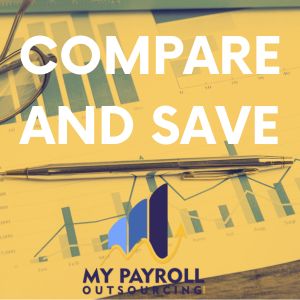
8. Security: The provider must have robust security measures in place to protect your business’s sensitive data. This includes encryption, firewalls, and data backup and recovery systems.
9. Reviews and Reputation: Consider the provider’s reputation in the industry. Look for online reviews and ask for references from other businesses that have used their services.
10. Flexibility: Each business has unique needs, and a good payroll provider should be able to offer flexible solutions that can be tailored to your business’s specific requirements. This might include customizable payroll reports, multiple payment options, or special features for handling bonuses, tips, or commission payments.
11. Training and Support: The payroll company should provide adequate training and resources to help you and your team understand and effectively use their system. Ongoing support should be readily available to answer any questions and resolve issues quickly.
12. Accuracy and Reliability: Payroll errors can be costly and time-consuming to correct. An excellent payroll provider will have strong systems in place to ensure accurate and reliable payroll processing. They should also guarantee their work and be willing to correct errors and cover any resulting penalties or fines.
13. International Capability: If your business has employees in multiple countries, you’ll need a payroll provider with international capabilities. They should be able to handle different currencies, time zones, and complex international tax laws and regulations.
14. Reporting Capability: Good payroll software will offer a wide range of reports that can help you manage your business more effectively. This might include reports on payroll costs, overtime, leave balances, and more. You should be able to easily generate these reports and customize them to meet your specific needs.

15. Vendor Stability: Choose a company that has a proven track record and financial stability. The longevity of a company often demonstrates their ability to adapt to changes in the market and regulatory environment.
16. Data Access: Ensure that the system allows easy access to historical and current payroll data. Being able to quickly retrieve this information when required (e.g., for audits or planning purposes) is very important.
Always do your due diligence when choosing a payroll outsourcing company. Evaluate several providers based on these criteria and select the one that best fits your business’s needs.
Remember, the “best” payroll outsourcing company will largely depend on your unique business needs and circumstances.
Frequently Asked Questions
Choosing a payroll outsourcing company involves careful consideration and asking the right queries. Certain aspects of this decision can be complex and not immediately clear. Without understanding these points, your experience with payroll outsourcing may be negatively impacted. Hence, we have compiled a list of frequently asked questions and their corresponding answers for your convenience.
Payroll Service Trends to Watch For in 2024
1. Cloud-Based Payroll Systems: The shift towards cloud-based payroll systems is expected to continue. These systems allow for secure, real-time access to payroll data from anywhere, making it easy for employees and managers to check their payroll information on-demand.
2. Increased Automation: With advancements in AI and machine learning, the level of automation in payroll processing is set to increase. Automation can help to reduce errors, improve efficiency, and allow HR teams to focus on more strategic tasks.
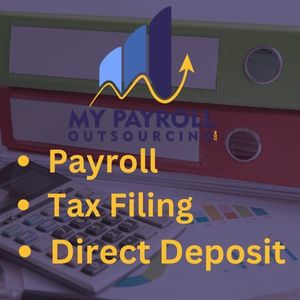
3. Integration of Payroll with HR and Other Systems: The trend of integrating payroll with HR systems, benefits management, time tracking, and other business software will continue. This can streamline processes and improve the accuracy and consistency of data across different systems.
4. Increased Use of Mobile Apps: Many payroll providers are expanding their mobile capabilities. This allows employees to access their pay stubs, submit time-off requests, and perform other tasks directly from their smartphones.
5. Greater Focus on Security: With increasing concerns about data breaches, payroll providers are likely to invest heavily in improving their security measures. This includes the use of encryption, two-factor authentication, and other advanced security technologies.
6. Rise of the Gig Economy: As the gig economy continues to grow, businesses will need payroll solutions that can handle the unique requirements of paying gig workers, such as variable pay rates and irregular payment schedules.
7. Real-Time Payments: As technology evolves, there is a growing expectation for real-time payment processing. This trend could revolutionize payroll, allowing employees to be paid instantly for each hour worked rather than waiting for a weekly or bi-weekly paycheck.
8. Enhanced Employee Self-Service: The trend of allowing employees to update their personal details, check their payment history, and manage their benefits through self-service portals will continue to grow. This can improve employee satisfaction and reduce the workload on HR teams.
9. Compliance with Changing Regulations: As payroll laws and regulations continue to change and become more complex, businesses will increasingly turn to payroll outsourcing providers to help them stay compliant.
10. Focus on Analytics and Reporting: There is a growing demand for advanced analytics and customizable reporting in payroll systems. This can provide valuable insights that help businesses to manage their labor costs and make informed decisions.
These trends indicate a future where payroll outsourcing is more automated, integrated, and user-friendly, with a strong focus on security, compliance, and analytics.